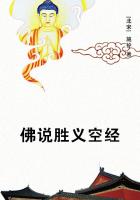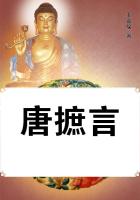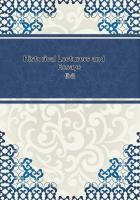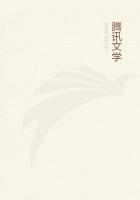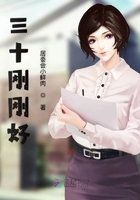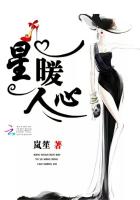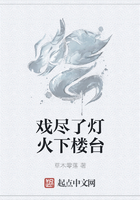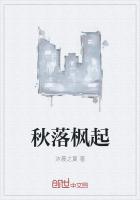Every commentator, as he has taken pains with any of them, thinks himself obliged to prefer his author to the other two; to find out their failings, and decry them, that he may make room for his own darling. Such is the partiality of mankind, to set up that interest which they have once espoused, though it be to the prejudice of truth, morality, and common justice, and especially in the productions of the brain. As authors generally think themselves the best poets, because they cannot go out of themselves to judge sincerely of their betters, so it is with critics, who, having first taken a liking to one of these poets, proceed to comment on him and to illustrate him; after which they fall in love with their own labours to that degree of blind fondness that at length they defend and exalt their author, not so much for his sake as for their own.
It is a folly of the same nature with that of the Romans themselves in their games of the circus. The spectators were divided in their factions betwixt the Veneti and the Prasini; some were for the charioteer in blue, and some for him in green. The colours themselves were but a fancy; but when once a man had taken pains to set out those of his party, and had been at the trouble of procuring voices for them, the case was altered: he was concerned for his own labour, and that so earnestly that disputes and quarrels, animosities, commotions, and bloodshed often happened; and in the declension of the Grecian empire, the very sovereigns themselves engaged in it, even when the barbarians were at their doors, and stickled for the preference of colours when the safety of their people was in question. I am now myself on the brink of the same precipice; I have spent some time on the translation of Juvenal and Persius, and it behoves me to be wary, lest for that reason I should be partial to them, or take a prejudice against Horace. Yet on the other side I would not be like some of our judges, who would give the cause for a poor man right or wrong; for though that be an error on the better hand, yet it is still a partiality, and a rich man unheard cannot be concluded an oppressor. I remember a saying of King Charles II. on Sir Matthew Hale (who was doubtless an uncorrupt and upright man), that his servants were sure to be cast on any trial which was heard before him; not that he thought the judge was possibly to be bribed, but that his integrity might be too scrupulous, and that the causes of the Crown were always suspicious when the privileges of subjects were concerned.
It had been much fairer if the modern critics who have embarked in the quarrels of their favourite authors had rather given to each his proper due without taking from another's heap to raise their own.
There is praise enough for each of them in particular, without encroaching on his fellows, and detracting from them or enriching themselves with the spoils of others. But to come to particulars:
Heinsius and Dacier are the most principal of those who raise Horace above Juvenal and Persius. Scaliger the father, Rigaltius, and many others debase Horace that they may set up Juvenal; and Casaubon, who is almost single, throws dirt on Juvenal and Horace that he may exalt Persius, whom he understood particularly well, and better than any of his former commentators, even Stelluti, who succeeded him. I will begin with him who, in my opinion, defends the weakest cause, which is that of Persius; and labouring, as Tacitus professes of his own writing, to divest myself of partiality or prejudice, consider Persius, not as a poet whom I have wholly translated, and who has cost me more labour and time than Juvenal, but according to what I judge to be his own merit, which I think not equal in the main to that of Juvenal or Horace, and yet in some things to be preferred to both of them.
First, then, for the verse; neither Casaubon himself, nor any for him, can defend either his numbers or the purity of his Latin.
Casaubon gives this point for lost, and pretends not to justify either the measures or the words of Persius; he is evidently beneath Horace and Juvenal in both.
Then, as his verse is scabrous and hobbling, and his words not everywhere well chosen (the purity of Latin being more corrupted than in the time of Juvenal, and consequently of Horace, who wrote when the language was in the height of its perfection), so his diction is hard, his figures are generally too bold and daring, and his tropes, particularly his metaphors, insufferably strained.
In the third place, notwithstanding all the diligence of Casaubon, Stelluti, and a Scotch gentleman whom I have heard extremely commended for his illustrations of him, yet he is still obscure; whether he affected not to be understood but with difficulty; or whether the fear of his safety under Nero compelled him to this darkness in some places, or that it was occasioned by his close way of thinking, and the brevity of his style and crowding of his figures; or lastly, whether after so long a time many of his words have been corrupted, and many customs and stories relating to them lost to us; whether some of these reasons, or all, concurred to render him so cloudy, we may be bold to affirm that the best of commentators can but guess at his meaning in many passages, and none can be certain that he has divined rightly.
After all he was a young man, like his friend and contemporary Lucan--both of them men of extraordinary parts and great acquired knowledge, considering their youth; but neither of them had arrived to that maturity of judgment which is necessary to the accomplishing of a formed poet. And this consideration, as on the one hand it lays some imperfections to their charge, so on the other side it is a candid excuse for those failings which are incident to youth and inexperience; and we have more reason to wonder how they, who died before the thirtieth year of their age, could write so well and think so strongly, than to accuse them of those faults from which human nature (and more especially in youth) can never possibly be exempted.

